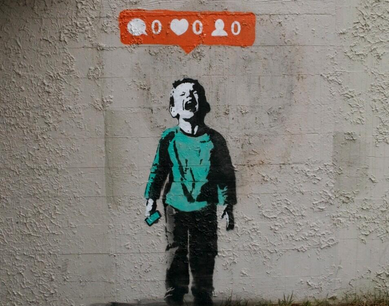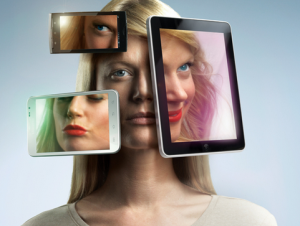Authentic.
The term has been on the lips of everyone from Oprah Winfrey to the Pope these days, but in spite the buzz, there is a hazy perception of what it actually means to be authentic in today’s society.
The career interviewing guides, spiritual gurus, college admissions advisers, marketing firms, online dating sites and reality TV stars alike all encourage the message of “Be your authentic self,” but what does that message really mean when it’s paired with a societal push to “Sell yourself,” in order to be successful?
If we strip it down to its definition, authenticity is “the degree to which one is true to one’s own personality, spirit, or character, despite external pressures.”
External pressures, such as body image in the mainstream media and the idea of the American Dream, have generously led to 24 million people of all ages and genders to suffer from eating disorders in the U.S. and a total outstanding consumer debt of $3.24 trillion as of July 2014. Look the part and live the lifestyle has been the brainwashing of recent history.

While consequences in the physical realm are easier to track, authenticity in the digital sphere is a social science just beginning to take shape.
For the majority of the collegiate and young professional demographic, the notion of “calculated authenticity” is replacing any semblance of “realness” in the era of the digital persona. Our generation started with AIM away messages, moved to MySpace bulletin posts, to Facebook statuses, to Tweets, to Instagrams, to Snapchats. (You can throw in the occasional update on LinkedIn and Google+ as well.)
We have been curating an online version of ourselves for quite some time now.
The external pressure to keep up with digital monster we have created could be serving as a major deterrent to authenticity. If public opinion in the form of “likes,” “shares,” “followers,” and positive reinforcement from our online peers is shaping the behavior of our online persona, then “you” have essentially lessened the degree to which you are true to your own personality, spirit, or character.

“I think for the most part my followers do get to see my real self, because I do try to reflect my own personality on my account, like how my bio says ‘mermaids and unicorns,’ those are two things that I actually do like,” said Hannah West, a freshman finance major at UF with an Instagram following that’s 2,100+ people strong.
Online bios filled with mythical creatures aside, does the act of “trying to reflect” oneself inherently make a post on social media inauthentic? From one standpoint, there should be no “try” in being yourself because, technically, no effort is needed.
Does the act of staging a photo specifically for social media, taking time to write, edit and rewrite a caption — and a geotag, of course — and spending time analyzing how it will be perceived change its level of authenticity?
On the surface we try hard to appear as though we are not selling ourselves as a tactic to, well, sell ourselves.
Can realness occur through platforms that allow for so much time to think before hitting “post” and allow even more time for insecurity before digital affirmation is reached?
I very clearly remember my first experiences on Instagram. I discovered within myself an appreciation for photography that I didn’t know I had. Above and beyond a photo of a pretty cappuccino, I now had a platform for snapshots of beautiful visual moments that didn’t involve a sorority squat or my over-edited face.
I knew something was seriously wrong when I actually found myself considering deleting a photo based on how little attention it received the other day. If that’s not desperate and sick, then I don’t know what is.
At some point the collective user base decided that it was going to be a means to showcasing a beautiful life, instead of those aforementioned beautiful moments, despite how inauthentic or unrealistic the representation is.

“I’ve had people come up to me and be like ‘Oh my God, your Instagram is so amazing. I wish I had your life!’ and it’s weird because they don’t know me at all,” said Sky Smith, a junior geology major at UF with an Instagram following of almost 1,000 people. “They just see this adventurous, fun version that I put out there.”
It’s intriguing to be on the front lines of the culture shift. As the first population to grow up and grow with these various social networks, we’re the ones who get to determine their worth in our lives and their value in our social sphere.
We are the only ones that can analyze its effects on our existence in a personal way.
It would seem as though the only analyzing happening is the insecure kind that hands over the reins of our self-worth to a sea of digital friends, foes and complete strangers. We calculate how to look authentic and then pray the social networks take the bait.

Via: C.J. Burton – phillymag.com
If deep, unwavering authenticity is something we are striving for, it might be time to take a harsh look at how the external pressures of our digital lives might be pulling us away from our true selves.
An unshakable sense of self can only exist on a foundation of authenticity. Abundant happiness and self-compassion can only flourish on a foundation of authenticity. Connection with others that is meaningful and vulnerable can only grow on a foundation of authenticity.
Plant your life in the fickle digital sand, however, and all that will bloom is self-doubt.
Featured photo courtesy of: Calam1





